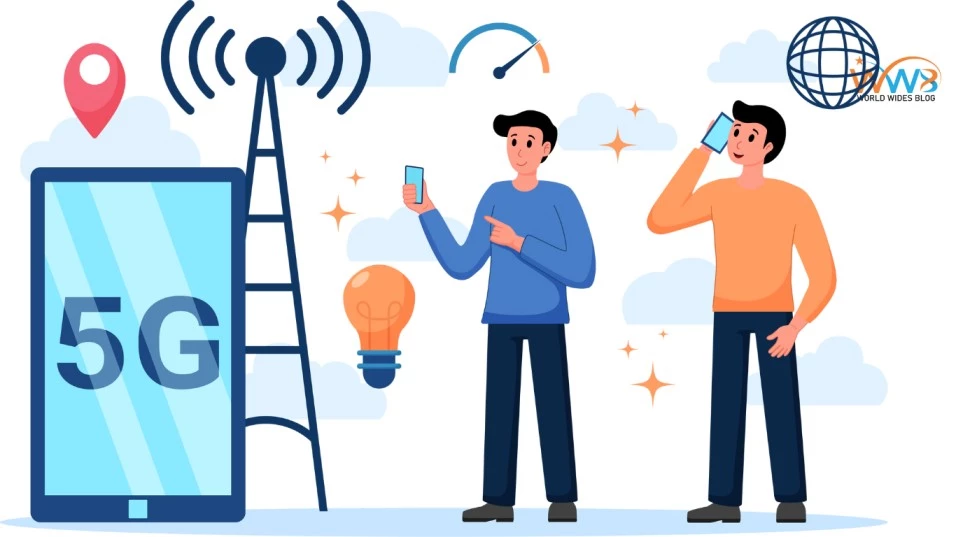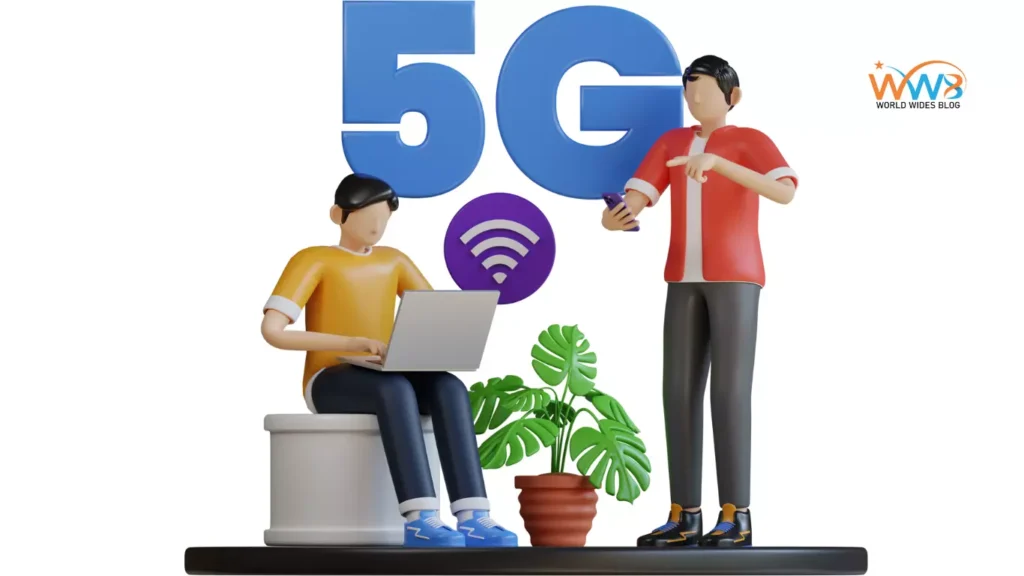The 5g standoff Squaringthenet refers to the global competition and tensions between major powers, particularly the United States and China, over the control and deployment of 5G technology.
This conflict involves security concerns, with the U.S. warning against using Chinese telecom equipment, as well as broader issues like infrastructure challenges and geopolitical rivalry.
Despite 5G’s potential to revolutionize industries with faster speeds and better connectivity, these tensions could impact its global rollout and integration. The outcome of this standoff will shape the future of communication and technology worldwide.
What is the 5G Standoff Squaringthenet?
“The 5G Standoff Squaringthenet” describes the global fight over who controls and uses 5G technology. The leading players in this conflict are the United States and China. This standoff centers around security, economic power, and technological leadership concerns.
The U.S. has raised alarms about the potential security risks of using Chinese-made 5G equipment, particularly from companies like Huawei, fearing it could lead to espionage and cyber threats.
In response, the U.S. has pressured allies to avoid Chinese technology in their 5G infrastructure, leading to a fragmented global rollout and increased geopolitical tensions.
This standoff also highlights the challenges of deploying 5G networks, such as the high infrastructure costs, the need for a large spectrum of frequencies, and public concerns over potential health risks.
The outcome of this standoff will significantly influence the future of global communications and technological innovation.
Why is the 5G Standoff Squaringthenet important?

- Geopolitical Impact: The standoff is a significant aspect of the global power struggle, particularly between the U.S. and China, affecting international relations and alliances.
- Technological Leadership: The outcome will determine which countries and companies lead in 5G technology, influencing future innovations and global tech standards.
- Security Concerns: There are serious concerns about potential espionage and cyber threats, primarily related to using Chinese-made 5G equipment, which could compromise national security.
- Economic Implications: 5G expected to generate trillions of dollars in monetary value. The standoff could impact global supply chains, trade, and economic growth.
- Global Connectivity: The standoff may lead to fragmented 5G networks worldwide, complicating global interoperability and the seamless functioning of international communication systems.
How does the 5G Standoff Squaringthenet affect global security?
The 5G Standoff Squaringthenet significantly impacts global security in several ways:
- Espionage Risks: The U.S. and its allies fear that Chinese companies like Huawei, which is involved in 5G infrastructure, could use this technology for espionage. The concern is that 5G networks could be exploited to intercept sensitive communications, access data, or disrupt critical infrastructure.
- Cybersecurity Threats: With 5G’s vast network of connected devices, the potential for cyberattacks increases. If a compromised 5G network is built with vulnerable equipment, it could become a target for hackers, leading to widespread disruption.
- Supply Chain Security: The standoff also affects the global tech supply chain. By excluding certain companies from participating in 5G development, nations aim to protect their networks from potential backdoors or malicious software.
- International Tensions: The standoff intensifies geopolitical tensions, leading to strained relations and increased global instability, as countries are forced to choose sides in this technological and security rivalry.
What are the challenges highlighted in the 5G Standoff Squaringthenet?
The 5G Standoff Squaringthenet highlights several challenges:
- High Costs: Building 5G infrastructure is expensive due to the need for many small antennas.
- Global Standards: There’s a need for universal 5G standards to ensure networks work smoothly across countries.
- Spectrum Availability: 5G requires specific frequency bands, which are not readily available everywhere.
- Health Concerns: Some people worry about the health effects of 5G, leading to opposition in certain areas.
Why is there a conflict over 5G technology?

The fight over 5G technology is because it is essential. 5G is not just an upgrade in mobile networks; it represents a significant leap forward in capabilities, enabling advancements in areas like autonomous vehicles, smart cities, and the Internet of Things (IoT).
Countries leading in 5G could gain a significant technological and economic edge. The United States has expressed concerns that China, mainly through companies like Huawei, could use its 5G technology for espionage or to gain geopolitical influence. These concerns have led to bans, trade restrictions, and increased tensions between nations.
What are the challenges highlighted in the 5G Standoff Squaringthenet?
The 5G Standoff Squaringthenet highlights several challenges:
- High Costs: Building 5G infrastructure is expensive due to the need for many small antennas.
- Global Standards: There’s a need for universal 5G standards to ensure networks work smoothly across countries.
- Spectrum Availability: 5G requires specific frequency bands, which are not readily available everywhere.
- Health Concerns: Some people worry about the health effects of 5G, leading to opposition in certain areas.
What is the future outlook discussed in the 5G Standoff Squaringthenet?

This standoff can strain relations between the United States and China. It can also affect their interactions with other countries involved in 5G technology and trade.
However, ongoing geopolitical tensions and security concerns could slow its global rollout and lead to a fragmented network. Despite these challenges, 5G is expected to drive innovation, enhance communication, and create new opportunities worldwide.
How does 5G affect global trade?
5G affects global trade in several ways. First, it could reshape global supply chains as companies and countries adjust to the new technology, leading to shifts in manufacturing locations and partnerships. Second, the standoff over 5G has already disrupted trade relationships, particularly between the U.S. and China.
For example, restrictions on Huawei have impacted the supply of semiconductors and other critical components. Adopting 5G could boost digital services and product trade, as the technology enables new business models and industries.
What are the security risks associated with 5G?

The security risks associated with 5G are significant due to the increased connectivity and data flow it enables. The main concerns include:
- Espionage: The possibility that 5G networks, particularly those built with equipment from companies like Huawei, could be used for spying by foreign governments.
- Cyberattacks: 5G networks are expected to support many connected devices, increasing the potential targets for cyberattacks. A breach in one part of the network could have widespread implications.
- Privacy: With more devices and data being transmitted over 5G networks, there is an increased risk of personal information being exposed or misused.
When can we expect a resolution to the 5G standoff?
A resolution to the 5G standoff is challenging to predict and will likely depend on diplomatic negotiations, technological developments, and changes in global political dynamics. The conflict is tied to broader issues in U.S.-China relations, including trade, security, and technology.
While some steps may be taken to mitigate tensions, a full resolution could take years and only be achieved through international agreements or shifts in global leadership.
Final Thoughts
The 5g standoff Squaringthenet is vital to developing digital connections. As nations and companies vie for dominance in the 5G landscape, the outcomes will shape the future of technology, security, and global economic dynamics.
This high-stakes competition underscores the importance of strategic planning and collaboration to navigate the complex challenges and opportunities presented by 5G. Resolving this standoff will ultimately define the next era of innovation and connectivity.
FAQs
1. What is the 5g standoff squaringthenet?
- The term “5G Standoff Squaring the Net” means the worldwide fight over who gets to control and use 5G technology. The leading players are the United States and China.
2. Why is 5G technology important?
- 5G technology is essential. It promises faster internet speeds, better connectivity, and the potential to power innovations like smart cities and autonomous vehicles.
3. What are the main issues in this standoff?
- The main issues include technological leadership, economic benefits, and national security concerns. Both countries want to lead in 5G to gain a competitive edge and influence global standards.
4. How does this conflict affect people?
- The conflict affects people by influencing the speed and availability of internet services. It impacts global technology standards and shapes the future of technological advancements.
5. What might happen because of this standoff?
- Potential outcomes include shifts in global technology leadership, changes in international trade relationships, and new standards for technology and security.
6. How does this affect international relations?
- This standoff can strain relations between the United States and China and affect their interactions with other countries involved in 5G technology and trade.











